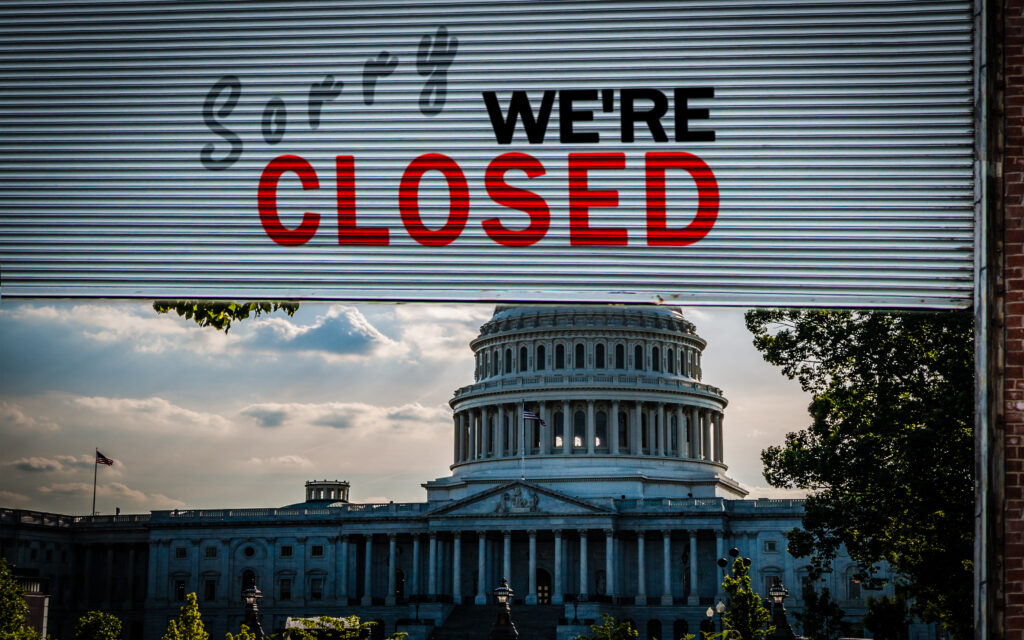Disclosure.
When you watch a stock analyst discuss a company’s stock on one of the business channels, the station typically displays a list indicating whether the analyst has a conflict. For example, does the analyst own the stock, does their firm own the stock, do their family members own the stock, or does the analyst’s firm provide services for the company? In the spirit of this type of transparency, I must state that I have previously worked with the Federal Reserve (Reserve).
However, my role was very minor; I chaired the board of the Charlotte branch of the Richmond Federal Reserve following the 2008 downturn. It was a valuable learning experience, and I have a great deal of respect for the Federal Reserve's operations. My comments in this blog are based on my perceptions, not those of the Federal Reserve.
Regardless of the extent of my role at the Federal Reserve, like many Americans, I am very interested in the ongoing tension between President Trump and the Reserve Chairman Jerome Powell. The interchange can be divided into two categories. The things that people know about the conflict, and the things that may be the hidden agendas.
The Knowns.
Federal Reserve Independence Is Not Clear-Cut. The Federal Reserve is not really independent. Wait. Let me explain my position. Congress established the Federal Reserve in 1913 in response to a movement by politicians and business leaders to create a national banking system. However, anyone who believes that the founders did not attempt to control the Federal Reserve is naïve. In the early years, it was subservient to the United States Treasury, and there was significant input from banks. There was considerable debate about whether the Federal Reserve should be controlled by banks or by the government. It will always be subject to both, even though the law says that the government controls it.
Additionally, the Federal Reserve must continually be aware of the impact its decisions will have on businesses, retirement accounts, mortgage markets, and the financial sectors of the United States and other countries — and the potential public reaction. This awareness serves as a control mechanism and can significantly hinder the Reserve’s flexibility; the Reserve is constantly under scrutiny and cannot operate unrestrainedly. While this is not direct oversight, it can be just as powerful at times.
Like the Supreme Court, the Reserve members are appointed, and, like the justices, the Reserve board members are subject to their own political and emotional biases and public attitudes. These provide additional controls.
It is worth noting that banks are still involved, even if not directly. Again, it would be naïve to think that banks, with their funding and political clout, do not have an impact on the Federal Reserve through political contacts. It is also worth noting that the heads of the Treasury Department and the Federal Reserve tend to come from the financial sector or may have attended school with those who are leaders in the financial sector.
Presidents prefer that the Reserve do things that will make them look good. Presidents are far more concerned about their approval ratings and reelection than they are about financial policy, unemployment, and interest rates. Congress, too, is always willing to jump in and blame the Reserve if something goes wrong. After all, it is easier for Congress to blame the Reserve than to actually provide budgetary leadership. Thinking the Reserve is independent is like saying a swimmer surrounded by sharks is in control. I know Warren Buffett has consistently said the Federal Reserve should remain independent. I rarely disagree with Warren Buffett's opinions. However, I am not sure the Reserve is independent.
The Members of the Federal Reserve Are Not Omniscient. Many times, I have spoken with people, including business professionals, who believe the Reserve possesses some magical predictive powers. Not true. Unfortunately, board members are human; they are prone to making mistakes. To illustrate, the predictions by Federal Reserve board members about the interest rates in the coming months often resemble a shotgun pattern scattered everywhere, rather than a tight grouping or a straight line. The board is often just wrong. This missed guidance is even more interesting given that the board sets the rates.
Additionally, the board may underestimate the problems plaguing the economy. One only has to examine 2008 to see that the Federal Reserve did not fully appreciate the financial storm that was coming. I remember talking with a banker just before the mortgage market collapsed. He had quit his job at a bank because he felt it was taking on too much mortgage risk. His perspective was prophetic. Another banker told me he wanted to leave his bank, but thought it was too late. The dam had already broken, and there was no way to deny what had happened. The Federal Reserve did not anticipate the impending financial tsunami, even though bankers may have done so a little earlier.
Control of the Federal Reserve's Actions. The President appoints and the Senate confirms the members of the Reserve Board, including the chair. The chair and the members can be removed for cause. Negligence or gross misconduct constitutes cause. However, making a decision that Congress or the President dislikes is not grounds for negligence or wrongdoing. For example, not lowering interest rates is not prima facie negligence.
We all realize that the President is on interesting ground when he says he is going to fire Powell, even if the President claims the cost overruns on the Federal Reserve renovations are the basis for removal. If overspending were gross misconduct, Congress, the President, and most state governors should be replaced. After all, it has been a long time since we had a balanced Federal budget. Equally important is the fact that if the President fires Powell and Powell refuses to leave, the President then finds themselves in an awkward position. He must remove Powell from his office. (I guess he could change his entry card code.)
Powell’s Attitude. In 2019, Chairman Powell was asked during a congressional hearing by Representative Maxine Waters, then chairwoman of the House Financial Services Committee, if he would leave if the President tried to fire him. He said, “No.” Chairman Powell has made it clear, then and now, that he does not want to leave.
President Trump Has Empowered Chairman Powell. Oddly, the tariff tiff gives Jerome Powell cover not to lower rates. After all, shouldn’t tariffs raise prices? The answer is not always "yes," but Powell can certainly use tariffs to shield himself. The President’s threats likely embolden the Reserve Chairman even more to refrain from raising rates, giving him a chance to thwart the President.
Unknowns.
Interest Rates. Now the unknowns. Are The Interest Rates At The Right Level? The truth is “No one knows.” I believe they could be lowered without any significant harm, but any reduction should occur slowly. The next Federal Reserve meeting is in a little over a week. A quarter of a point would not be problematic. One half of a point probably would not be problematic.
Powell Strategy. It is essential to note that Chairman Powell is not the sole vote on whether to lower interest rates. Other members of the Federal Open Market Committee (FOMC) participate in the voting process and could block a rate reduction. However, if Powell wants rates to go down, I feel confident the FOMC would lower them. If the Reserve lowered rates a quarter, or even half of a point, President Trump’s sails would lose a little wind, and Chairman Powell might buy some time. He does not have to buy much time since he has less than a year left. However, having watched the President operate for more than a decade, I am reasonably sure he will be unhappy unless rates are lowered significantly. A one percent drop might, I say “might,” please him.
What Does The President Want In The Long Run? Now we examine the greatest unknown: “What does President Trump really want?” Your first reaction might be that he wants rates lowered. A statement of the obvious, kinda. If rates are not reduced and the economy does well, the President can take complete credit and point out how much better things would have been if rates had been lowered. If the rates are not reduced and the economy does not do well, Powell is the perfect windmill with which the President can joust.
If the Federal Reserve lowers rates in the next couple of weeks, there is a high probability that the market will experience a favorable bounce. This increase will make workers happy because their 401(k) values are expected to rise. The President gets credit. But is it too soon to get credit? Does he need credit now? Do the Republicans benefit if rates are not lowered until Powell is gone? After all, if Jerome Powell does not lower rates in the short term, the President can appoint someone next spring who will lower rates. The market should bounce in time for the mid-term elections, and the Republicans would be more likely to retain control of Congress. Surely, the president is focused on the mid-term elections.
Can Powell Be Persuaded To Leave? The thing that will definitely encourage Jerome Powell to leave the Federal Reserve is not the President, but income and a platform. If he can find a great landing spot, a research think tank, where he can attack the government from the outside and be well compensated, he might be inclined to leave the Reserve chair position, especially since he is on borrowed time.
As I was writing this blog, I heard a news report that Secretary of the Treasury Bessent had persuaded the President to keep Jerome Powell. I suppose he suggested to the president that by not dismissing the Chairman, he was taking the high road. In addition, as mentioned above, if things go well, the President gets the credit. If they go poorly, the President can blame Powell. In the midst of all this, the cost overrun on the renovation of the Federal Reserve building is still being examined, and the recent referral of a criminal charge to the Department of Justice by a member of the House of Representatives does raise the stakes. Surely the President will win in the long run. However, the Reserve meeting next week may be good theater.
If you have not read the blog that describes the "However View," click here.





